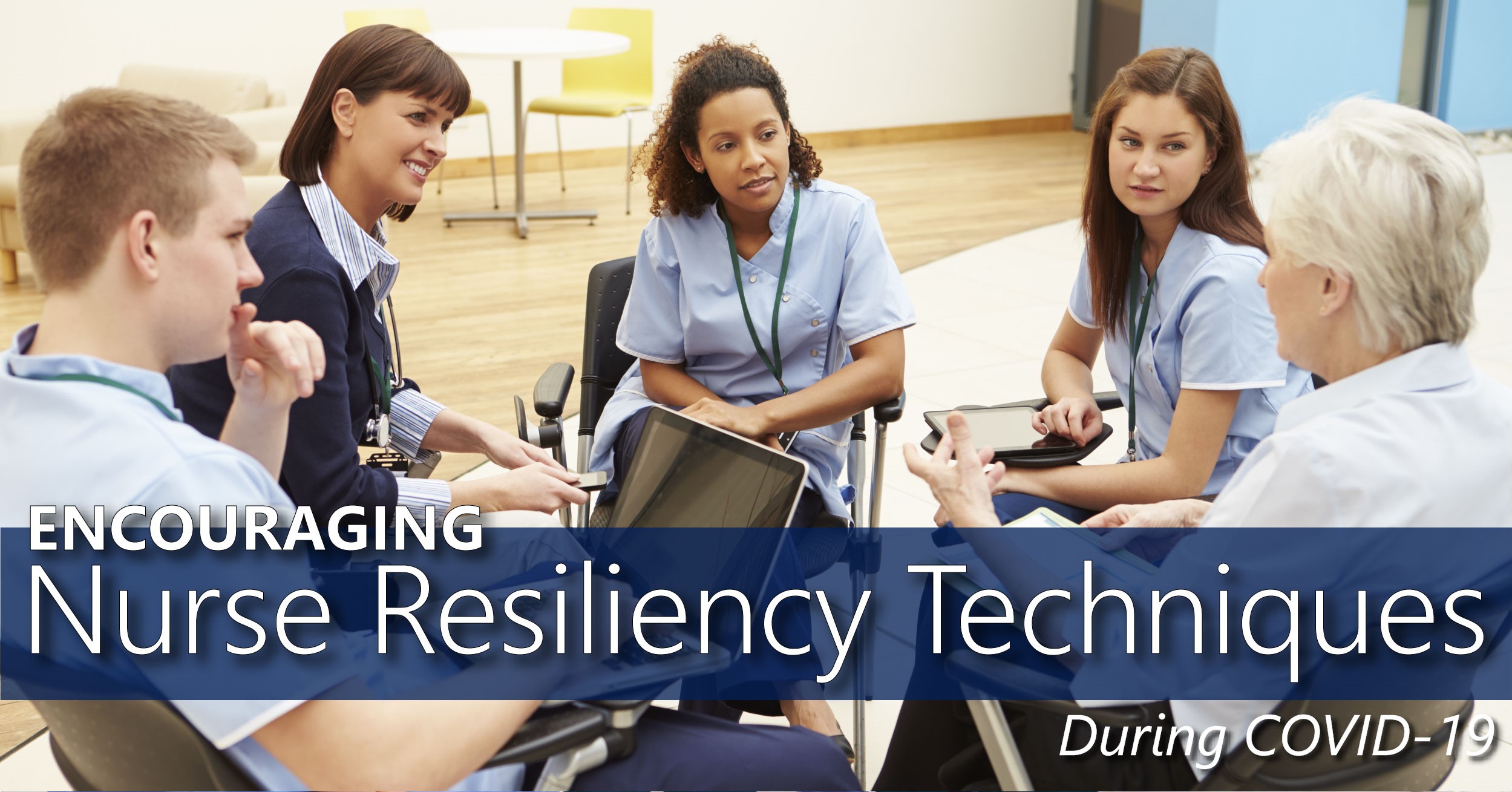Hospitals are struggling to hold on to all nurses, but especially the new ones. Eighteen percent of new nurses will change jobs, or even professions, within the first year after graduation. An additional one-third leave their organizations within 2 years. Nursing turnover can be extremely costly for health systems. Besides just the hard cost of recruiting and onboarding, it is hard to build a nurse leader pipeline when there is fluctuating talent being brought up within the system.
1st year nurses may be talking to their nursing school peers, and hearing about better opportunities at other hospitals. Or 1st year nurses may have no ties to a city/region which makes them more likely to interview other places. But even worse, your organization itself may be contributing to young nurses are leaving the organization. It could be creating a reputation among young nurses to avoid your hospital and go elsewhere.
How can your health system leadership, or your more seasoned nurses, actually contribute to 1st year nurse turnover?
- Not valuing 1st year nurses, or at least are not showing it. Older nurses may make comments about Millennial workers or work ethics/work styles.
- 1st year nurses could feel they are stuck picking up the slack for other nurses, or doing work other nurses do not want to do.
- 1st year nurses may be given little role clarity. They may feel like goals are ambiguous, and that more experienced nurses are not helping to prepare them.
- 1st year nurses may see little opportunity for growth or leadership development.
How can your organization turn this phenomenon around?
Offer better role clarity, which can also help alleviate stress
First year nurses have just had 14-16 years of schooling or more, where curriculums are clear from the first day. Then they begin working and realize work and life are messy and there is role ambiguity. This can lead to a low sense of control over job performance, and ultimately stress. What can nurse leaders do to stop this? For starters, make sure role expectations and performance is communicated well and across multiple channels. Have periodic check-ins with your new nurses. Let them know how their performance is contributing, and offer support.
Offer better communication; a 1st year nurse needs management to communicate about critical issues
Most surveys and studies show that Millennial workers want more communication and feedback, or at least more than other generations have. While older generations value a big paycheck or advancement opportunities, Millennial workers are more likely to aim for career or organization purpose. Show your 1st year nurses how their contributions help the larger health system at a macro level, and how they contribute to your team at a micro level. Management and supervisors should be available, or at least visible to nurses who are finding their way early in careers. Solicit input from young nurses on critical work issues. Incent your team to share 360-feedback to improve how critical issues are handled. This could show 1st year nurses that you value communication, and show they are a part of critical issues and decisions.
Offer rewards or recognitions for accomplishments
Nurses who feel valued, appreciated, and respected—and who enjoy professional communication and working relationships—will stay at an organization and remain engaged in their profession. This is especially true for nurses newly out of school. Offer recognition for accomplishments to show young nurses they are valued. Recognizing and rewarding nurses does not have to be complicated or time-consuming. It could be on-the-spot recognition, maximizing staff meetings, fun activities, feedback surveys, or general retention activities.
It’s not uncommon to forget to show associates that they are highly valued. Sometimes a shout out will do; other times an offer of lunch with the boss or an invite to attend an off-site training will help demonstrate that you are indeed happy to have this young nurse on your team.
Offer support from more experienced nurses
Young nurses are not looking for authoritarian leadership, they want coaching to help them learn and grow as professionals. Retaining nurses requires adjusting to adapt to this generation, so make sure the right older nurse is coaching. The right coach/mentor can help a young nurse to see how their contributions are valued. It can also help encourage continuous learning, can help young nurses to build networks/join professional organizations, and can even help teach young nurses about emotional intelligence. For example, Franciscan St. Francis Hospital in Indianapolis implemented a preceptor and mentor program to help new graduate nurses during their first year of employment. This decreased the organization’s 1st year turnover rate from 31% to 10% in 2 years. There is nothing in a textbook that can replace real-life experience of a seasoned nurse who has navigated a full career. If your health system doesn’t already have a young nurse mentor program, maybe it is time to start.
Offer opportunities for growth for high-performing young nurses
1st year nurses want to see that their health system is willing to invest in them and prepare them for future leadership roles. Actively supporting career development through online and in-person training courses can help maximize skills, growth potential and professional opportunities. For a young nurse, the first opportunity for team leadership is generally the Charge Nurse role. Leading and delegating to peers, especially to older peers, is stressful. As a manager or director, you may see that offering these roles to young nurses without leadership development and preparation may lead to stress for young nurses. So offer Charge Nurse leadership development.
East Alabama Medical Center (EAMC) is a 340-bed hospital in a rural area. Because it is an area where there is a smaller talent pool than larger metro areas, EAMC really prioritizes growing its talent from within. Rosemary Cummings is the Director of Medical Surgical Services at EAMC, and recently implemented NCharge to prepare young nurses for leadership roles. She commented “We take a lot of pride in how we do things from a quality and cost perspective. It <NCharge> helps our frontline nurse supervisors to see we’re investing in them. Development at this organization is an important piece of who we are. I think that’s why people stay.”
NCharge: “Nurses Learning to Lead” is an evidence-based curriculum that gives first level supervisory nurses the insights, interpersonal skills, and business knowledge they need to more effectively manage, inspire, and lead. Courses are delivered either classroom-based or virtually. NCharge is for nurses who desire to build management and leadership skills and/or want to learn about the business-related aspects of nursing. Health systems use NCharge to build a nurse leader pipeline, ensure a smooth transition from peer to leader, and to increase nurse engagement and retention.
Feel free to read our related articles!
“Preparing Millennial Charge Nurses to be Successful Leaders”
“Encouraging Your Nurses’ Career Path?”
“What Your Nurses Didn’t Learn in Nursing School”
Sources
“Millennial Workers Want More than a Paycheck. So What Exactly do They Want?” Monster Inc, Roberta Matuson
“Nurse Retention Toolkit: Everyday Ways to Recognize and Reward Nurses,” HC Marketplace, Lydia Ostermeier MSN, RN, CHCR and Bonnie Clair, BSN, RN
“Strategies to reduce nursing turnover,” Nursing Made Incredibly Easy, Lisa Lockhart MHA, MSN, RN, NE-BC, April 2020
“7 Things That Cause Nurse Turnover (and 8 Things That Stop It)” ita group



